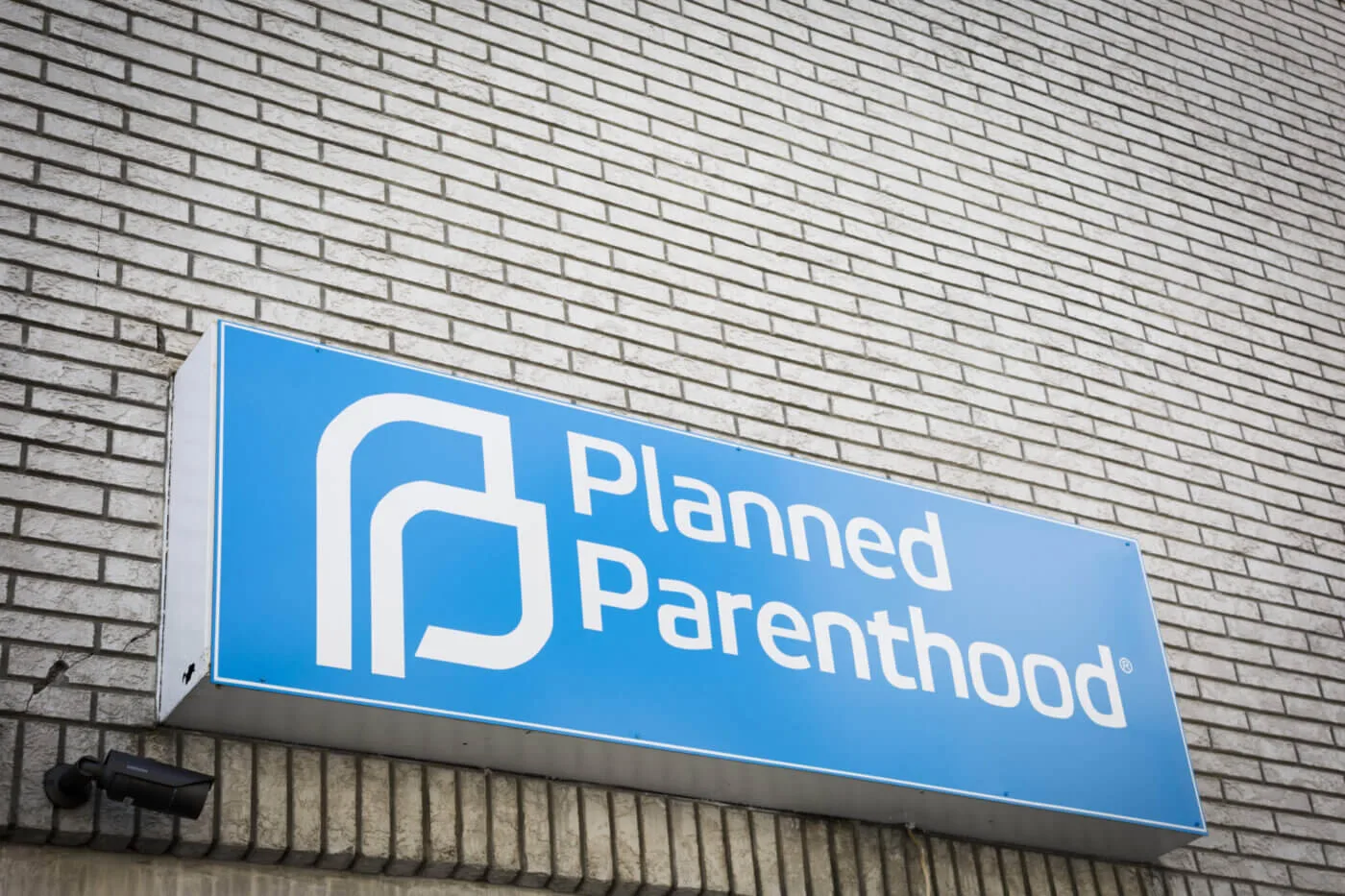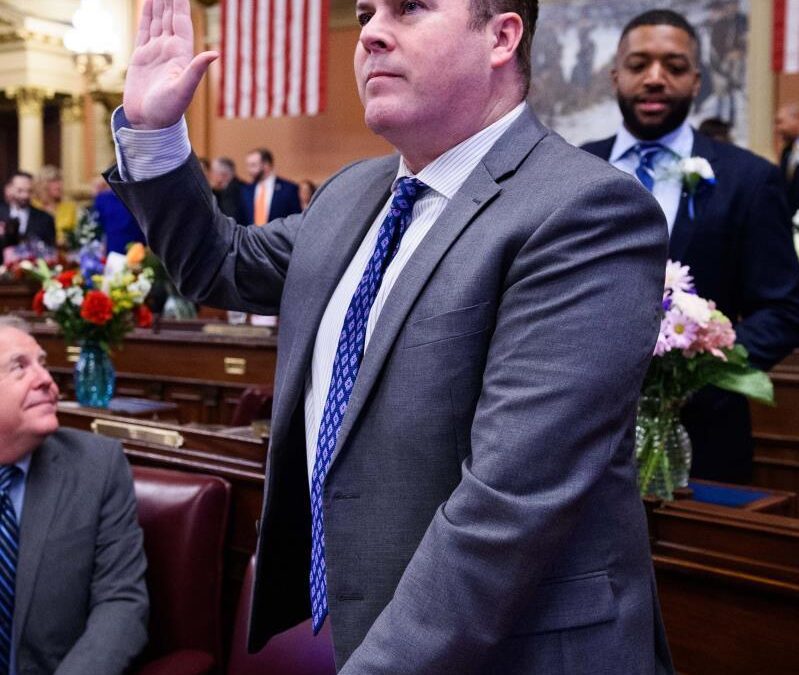
Planned Parenthood (Shutterstock)
Can Pa. abortion clinics handle the influx of patients from neighboring states like West Virginia, where abortion is banned, and Ohio, where abortion is severely restricted? And what happens to those who may have to be turned away?
While abortion is still legal in Pennsylvania, that isn’t the case nationally following the repeal of Roe v. Wade by the Supreme Court of the United States.
These sudden abortion bans and restrictions in certain states make it necessary for more people to travel to states like Pennsylvania for abortion services.
In 2020, there were 32,123 abortions performed in Pennsylvania, according to a report from the state Department of Health, with out-of-state patients accounting for 2,144 of those abortions.
With the fall of Roe v. Wade, Planned Parenthood Keystone estimates that 8,500 out-of-state patients could flock to Pennsylvania to seek abortion care this year. In particular, Planned Parenthood expects many of them will arive from neighboring states like Ohio, which passed a ban on abortions after 6 weeks in 2019, and West Virginia, where abortion is now entirely illegal post-Roe, and anyone who provides abortion services may be imprisoned up to 10 years.
Given the proximity of abortion services in other states bordering Ohio and West Virginia, this estimate tracks. For 70% of women in Ohio, Pennsylvania is the closest state to obtain services after 6 weeks of pregnancy. For 40% of West Virginia women, the commonwealth is their closest hope to obtain abortion care.
So as abortion providers in Pennsylvania prepare for the likelihood of an influx of out-of-state patients, can the 17 freestanding abortion clinics (a majority of which are located in the eastern part of the state) throughout the commonwealth handle the wave of new patients? And what happens if they can’t?
Who Will Feel the Effects of the Influx?
A report from the Guttmacher Institute shows that women from low-income backgrounds are five times more likely to have unplanned pregnancies than higher-earning females. Financially strapped women are more likely to need extra time to obtain enough money to pay for an abortion, often leading to a delay in making an appointment. Medication abortions in Pennsylvania cost around $500, and later-term surgical procedures can cost as much as $2,200, depending on the pregnancy term.
With an influx of out-of-state patients, waiting longer could mean a woman might not be able to get an appointment in time.
“For people who are already in marginalized communities, Black and Brown communities, low-income communities, rural communities, they are going to have the gravest harm,” said Melissa Reed, Planned Parenthood Keystone President and CEO.
According to the Economic Policy Institute, being denied an abortion comes with economic consequences such as a higher chance of poverty, lower likelihood of being employed full time, and an increase in financial distress that could last years.
“The lack of access to the full range of reproductive health care services in the states, including abortion care, will have a devastating effect on women’s short-and-long-term earnings and income, job security and career advancement, and increase the likelihood they will become impoverished,” C. Nicole Mason, president and CEO of the Institute for Women’s Policy Research, said.
An analysis by the Institute for Women’s Policy Research found that abortion bans cost state and local economies $105 billion annually by reducing women’s labor force participation and earnings. And the economic disparities would be felt for generations to come.
What Does This Mean for Pennsylvania?
Reed says the Supreme Court’s decision to overturn Roe v. Wade has already created a surge in patients traveling to Pennsylvania. With increased demand for abortion services, providers like Planned Parenthood are making contingency plans.
“We are working very hard to expand access to abortion by adding increased appointment availability, hiring more doctors,” Reed said.
While most patients so far are booking appointments in clinics in western Pennsylvania, Reed said providers statewide are already taking on telehealth services to free up in-person resources in cities like Pittsburgh.
In Pennsylvania, only physicians can perform an abortion of any kind or prescribe pills for a medication abortion. So, unless a resident from another state already has a gynecologist or obstetrician in the commonwealth, they will be flocking to freestanding clinics.
And even though abortion remains legal in Pennsylvania, current laws don’t make obtaining the procedure easy. A patient seeking an abortion must receive state-mandated counseling that includes a 24-hour waiting period between the initial appointment and when the procedure is provided.
Pennsylvania alslo places many significant restrictions on abortion access, such as prohibiting public funds, including Medicaid, to be used for abortion care. Health plans offered in the state’s health exchange under the Affordable Care Act can only cover abortion if the person’s life is endangered, or in cases of rape or incest.
To help offset the financial burden, abortion clinics receive funding from the Justice Fund through the National Network of Abortion Funds as well as through the Abortion Liberation Fund in Philadelphia.
Elicia Gonzales, executive director of the Abortion Liberation Fund of PA, said her organization already struggles to provide financial support for all of the abortion seekers who live in the state.
“We are incredibly nervous because we’re not meeting the needs currently,” she said.
Patients are provided financial support based on their need, not where they live. Demographic information such as where a patient lives is collected for reporting purposes only.
Gonzales said her organization has increased its funding from $610,000 to about $840,000 for the next fiscal year, but that may not be enough. Last year, the fund used around $667,000 to help 3,200 people pay for abortions. Providing financial assistance for the anticipated influx of out-of-state patients will be more costly, since they usually have additional expenses like travel costs and covering missed days of work.
Dr. Alhambra Frarey, an obstetrician and gynecologist at Penn Medicine, said the influx of out-of-state patients will either make it more difficult for Pennsylvanians to access timely abortion care or will force many into unwanted pregnancies and childbirth.
“Abortion is life-affirming and life-saving health care,” Dr. Alhambra Frarey, an obstetrician and gynecologist at Penn Medicine, said. “There has always been and there always will be a need for abortions.”
Politics

Philadelphia DA cancels arrest warrant for state Rep. Kevin Boyle on eve of Pa. primary
Philadelphia District Attorney Larry Krasner said a detective had sought the warrant against Boyle, a Democrat whose district includes a section of...

Influencers and creators find new ways to engage young Philadelphia voters
Rec Philly, a space for creators and influencers, teamed up with Show Up Strong to get hundreds of young Philadelphia residents engaged in the...

New Biden rule protects privacy of women seeking abortions
Under the new rules, state officials and law enforcement cannot obtain medical records related to lawful reproductive health care with the goal of...
Local News

Conjoined twins from Berks County die at age 62
Conjoined twins Lori and George Schappell, who pursued separate careers, interests and relationships during lives that defied medical expectations,...

Railroad agrees to $600 million settlement for fiery Ohio derailment, residents fear it’s not enough
Norfolk Southern has agreed to pay $600 million in a class-action lawsuit settlement for a fiery train derailment in February 2023 in eastern Ohio,...






